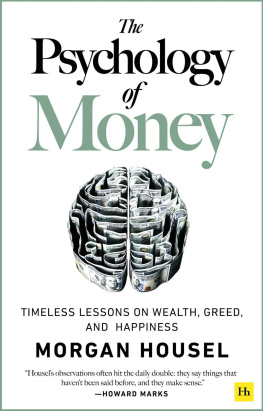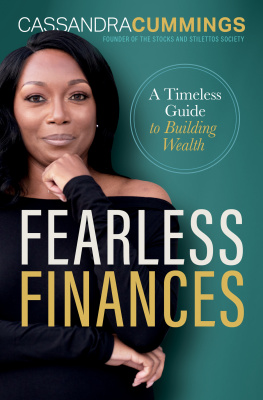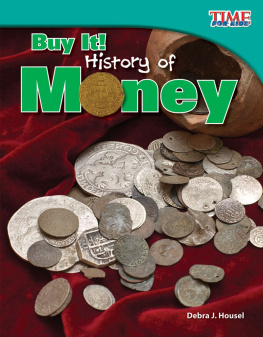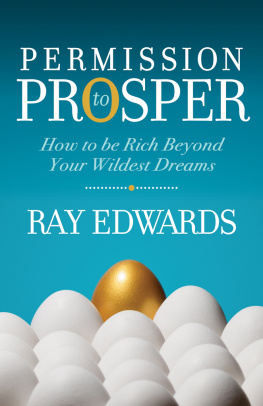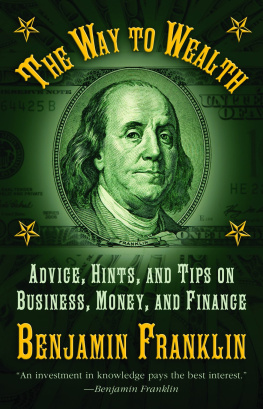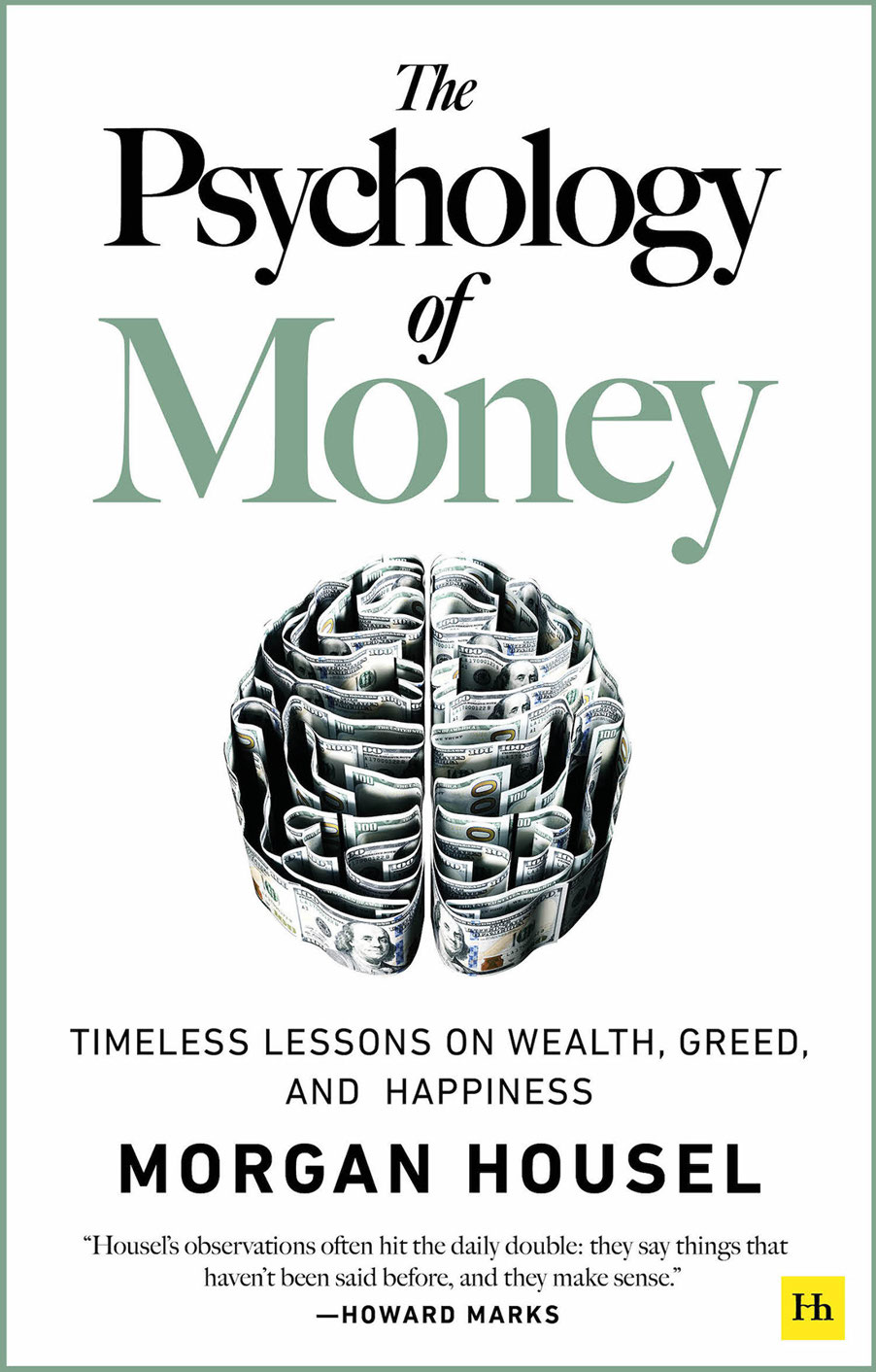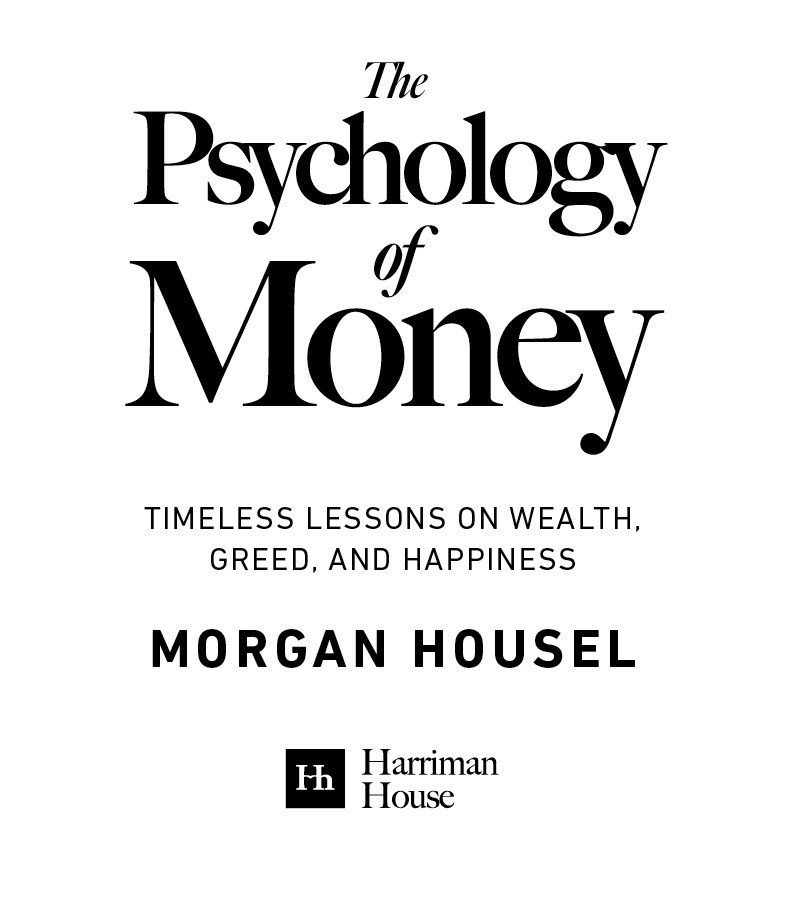For
My parents, who teach me.
Gretchen, who guides me.
Miles and Reese, who inspire me.
A genius is the man who can do the average thing when everyone else around him is losing his mind.
Napoleon
The world is full of obvious things which nobody by any chance ever observes.
Sherlock Holmes
Ispent my college years working as a valet at a nice hotel in Los Angeles.
One frequent guest was a technology executive. He was a genius, having designed and patented a key component in Wi-Fi routers in his 20s. He had started and sold several companies. He was wildly successful.
He also had a relationship with money Id describe as a mix of insecurity and childish stupidity.
He carried a stack of hundred dollar bills several inches thick. He showed it to everyone who wanted to see it and many who didnt. He bragged openly and loudly about his wealth, often while drunk and always apropos of nothing.
One day he handed one of my colleagues several thousand dollars of cash and said, Go to the jewelry store down the street and get me a few $1,000 gold coins.
An hour later, gold coins in hand, the tech executive and his buddies gathered around by a dock overlooking the Pacific Ocean. They then proceeded to throw the coins into the sea, skipping them like rocks, cackling as they argued whose went furthest. Just for fun.
Days later he shattered a lamp in the hotels restaurant. A manager told him it was a $500 lamp and hed have to replace it.
You want five hundred dollars? the executive asked incredulously, while pulling a brick of cash from his pocket and handing it to the manager. Heres five thousand dollars. Now get out of my face. And dont ever insult me like that again.
You may wonder how long this behavior could last, and the answer was not long. I learned years later that he went broke.
The premise of this book is that doing well with money has a little to do with how smart you are and a lot to do with how you behave. And behavior is hard to teach, even to really smart people.
A genius who loses control of their emotions can be a financial disaster. The opposite is also true. Ordinary folks with no financial education can be wealthy if they have a handful of behavioral skills that have nothing to do with formal measures of intelligence.
My favorite Wikipedia entry begins: Ronald James Read was an American philanthropist, investor, janitor, and gas station attendant.
Ronald Read was born in rural Vermont. He was the first person in his family to graduate high school, made all the more impressive by the fact that he hitchhiked to campus each day.
For those who knew Ronald Read, there wasnt much else worth mentioning. His life was about as low key as they come.
Read fixed cars at a gas station for 25 years and swept floors at JCPenney for 17 years. He bought a two-bedroom house for $12,000 at age 38 and lived there for the rest of his life. He was widowed at age 50 and never remarried. A friend recalled that his main hobby was chopping firewood.
Read died in 2014, age 92. Which is when the humble rural janitor made international headlines.
2,813,503 Americans died in 2014. Fewer than 4,000 of them had a net worth of over $8 million when they passed away. Ronald Read was one of them.
In his will the former janitor left $2 million to his stepkids and more than $6 million to his local hospital and library.
Those who knew Read were baffled. Where did he get all that money?
It turned out there was no secret. There was no lottery win and no inheritance. Read saved what little he could and invested it in blue chip stocks. Then he waited, for decades on end, as tiny savings compounded into more than $8 million.
Thats it. From janitor to philanthropist.
A few months before Ronald Read died, another man named Richard was in the news.
Richard Fuscone was everything Ronald Read was not. A Harvard-educated Merrill Lynch executive with an MBA, Fuscone had such a successful career in finance that he retired in his 40s to become a philanthropist. Former Merrill CEO David Komansky praised Fuscones business savvy, leadership skills, sound judgment and personal integrity. Crains business magazine once included him in a 40 under 40 list of successful businesspeople.
But thenlike the gold-coin-skipping tech executiveeverything fell apart.
In the mid-2000s Fuscone borrowed heavily to expand an 18,000-square foot home in Greenwich, Connecticut that had 11 bathrooms, two elevators, two pools, seven garages, and cost more than $90,000 a month to maintain.
Then the 2008 financial crisis hit.
The crisis hurt virtually everyones finances. It apparently turned Fuscones into dust. High debt and illiquid assets left him bankrupt. I currently have no income, he allegedly told a bankruptcy judge in 2008.
First his Palm Beach house was foreclosed.
In 2014 it was the Greenwich mansions turn.
Five months before Ronald Read left his fortune to charity, Richard Fuscones homewhere guests recalled the thrill of dining and dancing atop a see-through covering on the homes indoor swimming poolwas sold in a foreclosure auction for 75% less than an insurance company figured it was worth.
Ronald Read was patient; Richard Fuscone was greedy. Thats all it took to eclipse the massive education and experience gap between the two.
The lesson here is not to be more like Ronald and less like Richardthough thats not bad advice.
The fascinating thing about these stories is how unique they are to finance.
In what other industry does someone with no college degree, no training, no background, no formal experience, and no connections massively outperform someone with the best education, the best training, and the best connections?
I struggle to think of any.
It is impossible to think of a story about Ronald Read performing a heart transplant better than a Harvard-trained surgeon. Or designing a skyscraper superior to the best-trained architects. There will never be a story of a janitor outperforming the worlds top nuclear engineers.
But these stories do happen in investing.
The fact that Ronald Read can coexist with Richard Fuscone has two explanations. One, financial outcomes are driven by luck, independent of intelligence and effort. Thats true to some extent, and this book will discuss it in further detail. Or, two (and I think more common), that financial success is not a hard science. Its a soft skill, where how you behave is more important than what you know.
I call this soft skill the psychology of money. The aim of this book is to use short stories to convince you that soft skills are more important than the technical side of money. Ill do this in a way that will help everyonefrom Read to Fuscone and everyone in betweenmake better financial decisions.
These soft skills are, Ive come to realize, greatly underappreciated.
Finance is overwhelmingly taught as a math-based field, where you put data into a formula and the formula tells you what to do, and its assumed that youll just go do it.
This is true in personal finance, where youre told to have a six-month emergency fund and save 10% of your salary.

